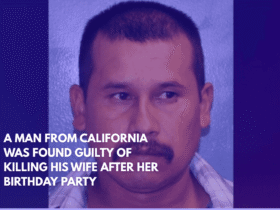Christopher McCullough, a man from North Carolina, is facing trial for allegedly murdering his mother and attempting to murder his father. Jury selection began this week, with opening statements expected early next week.
McCullough is charged with murder, attempted murder, kidnapping, larceny, assault, and violating a protective order, among other charges.
The Crime and Arrest
On the afternoon of August 6, 2023, officers responded to a disturbance call at the McCullough home. There, they found John and Mary McCullough suffering from serious injuries after being beaten.
According to the Raleigh Police Department, McCullough was initially charged with assault, but the charges were later upgraded to murder after his mother’s death a few days later.
Court documents indicate that after allegedly beating his mother to death and rendering his father unconscious, McCullough then kidnapped the family dog, stole a vehicle from his parents, and fled with his 5-year-old son. The child was allegedly a witness to the brutal attack, which could make him a key witness in the trial.
The Role of McCullough’s Son in the Trial
Now 6 years old, McCullough’s son is expected to testify in court. The judge has allowed the boy to testify remotely and has ordered that a therapist be present to support him during the trial. His testimony could be crucial for the prosecution in proving the case against McCullough.
Defense Argument: Voluntary Intoxication
McCullough’s defense lawyer has filed a motion claiming voluntary intoxication as a defense. According to this defense, McCullough allegedly drank excessively on the day of the crime, which could have affected his mental state and capacity to form malice.
The defense does not deny McCullough’s actions but argues that his mental state at the time may have been impaired, potentially affecting his criminal intent.
However, the defense has not yet provided specific details about how they plan to present this claim during the trial. Voluntary intoxication is often used in murder trials to suggest that a defendant lacked the necessary intent to commit murder.











Leave a Reply